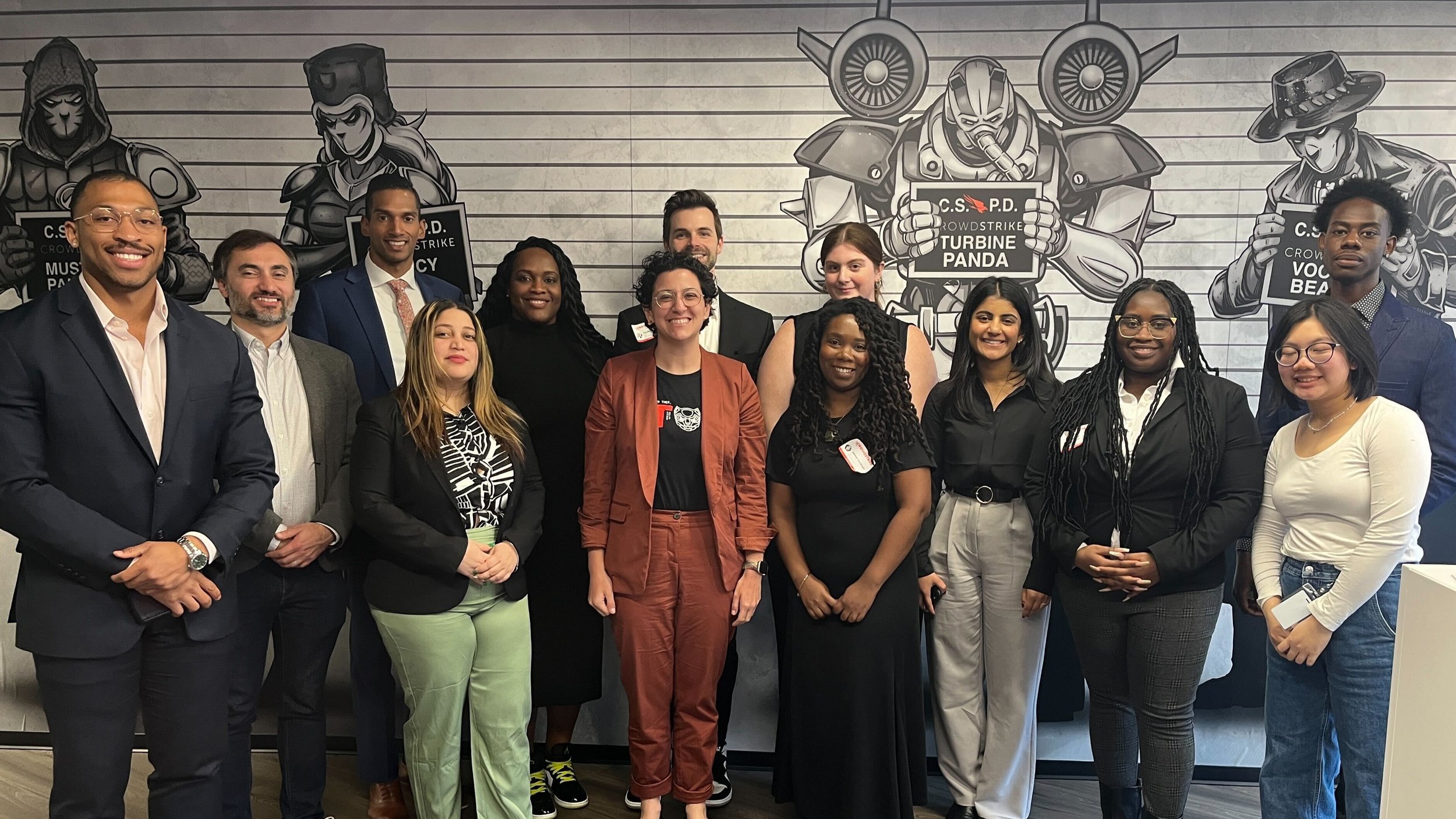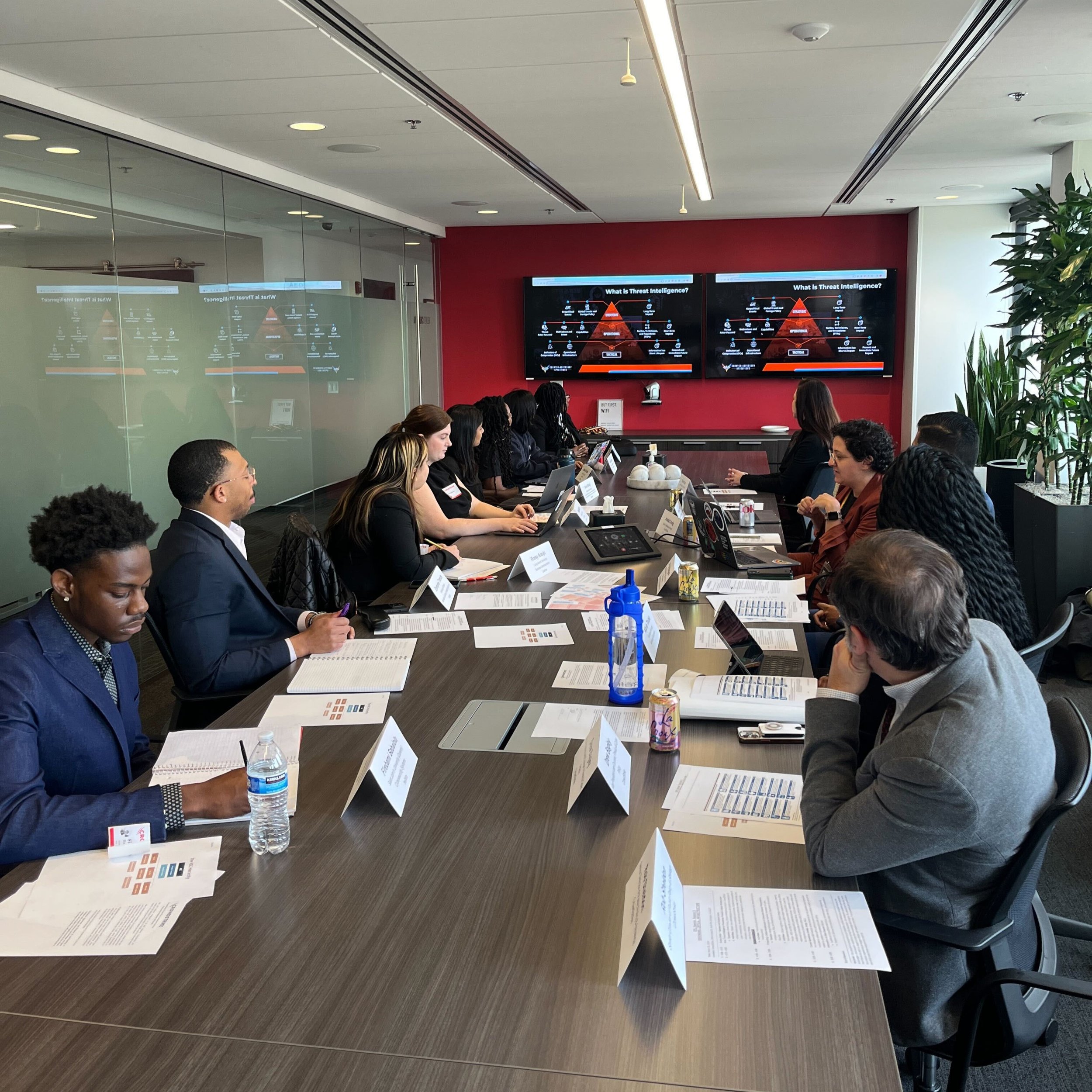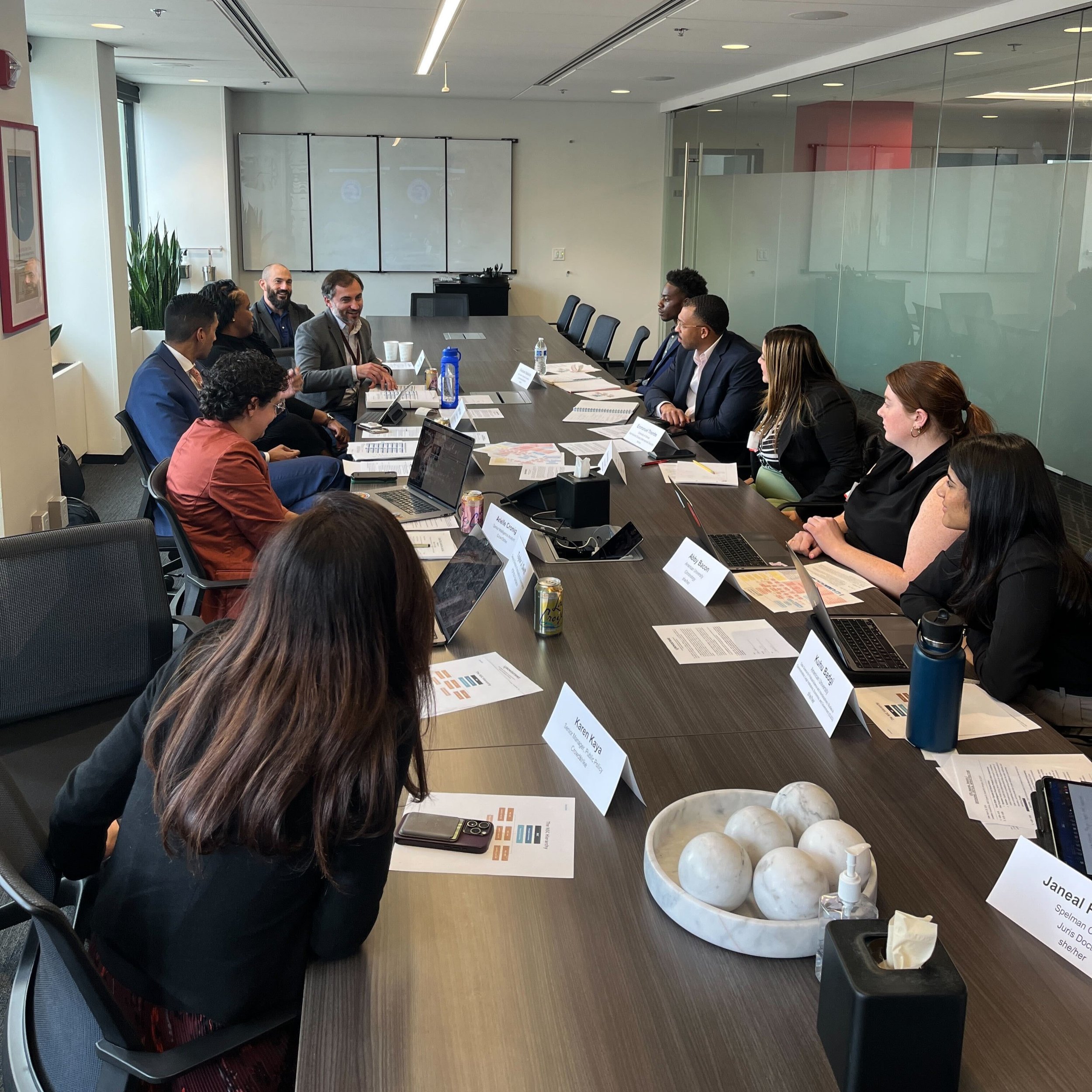Cyber Policy Leadership Institute’s Fellows Examine Cyber Security Within Critical Infrastructure Serving Minority Communities
On March 26, during the third session of the Cyber Policy Leadership Institute (CPLI), fellows explored cybersecurity weaknesses in critical infrastructure serving minority communities, specifically within healthcare, water systems, and educational sectors. Speakers also addressed obstacles minority students face in accessing cybersecurity education and career paths.
Arielle Cronig, Senior Intelligence Analyst at CrowdStrike, explored the application of cyber threat intelligence in real-world scenarios, emphasizing threat intelligence, threat hunting, and dark web monitoring. Cronig explained the tactical, operational, and strategic layers of cyber intelligence, highlighting its significance across critical infrastructure sectors. The group discussed the 2024 CrowdStrike Threat Report, which shed light on the capabilities and intentions of threat actors, including nation states, hacktivists, and eCrime groups, and their impact on sectors like academia.
Iranga Kahangama, Assistant Secretary for Cyber, Infrastructure, Risk, and Resiliency at the US Department of Homeland Security discussed cybersecurity policy and its implications for critical infrastructure protection, highlighting challenges posed by competing authorities, limited resources, and harmonizing regulations. Kahangama emphasized the necessity of navigating a web of complex scenarios, systems, and policies to ensure comprehensive and layered protection for each critical infrastructure sector.
Crowdstrike’s Drew Bagley, Rob Sheldon, and Karen Kaya, along with Nicole Tisdale, POPVOX Foundation Senior Fellow and founder of Advocacy Blueprints, delved into the nuanced dynamics between private and public sector collaborations with the CPLI fellows. Meanwhile, Taylor Swift, POPVOX Foundation’s Deputy Director of Governance & Innovation, navigated the challenges of securing funding and reform for cybersecurity policy in a divided Congress. The discussions underscored the ongoing policy debate regarding collaborative information exchange between the public and private sectors, as well as how the push and pull of oversight and funding by government agencies over entities that may need critical infrastructure investments.
The Cybersecurity Policy Leadership Initiative (CPLI), a collaborative effort among CrowdStrike, Advocacy Blueprints, and POPVOX Foundation, aims to bridge the representation divide in the field of cybersecurity policy. Over the course of four sessions, the CPLI program offers a dynamic blend of presentations, interactive roundtable discussions, mentoring sessions, and preparatory activities designed for internships, all focused on cybersecurity and public policy. The program's primary mission is to seamlessly integrate CPLI Fellows into the cybersecurity policy landscape, preparing them with the necessary skills and knowledge for internships and future career paths. For more insights into the inaugural session and to explore the program further, visit popvox.org/cpli.



